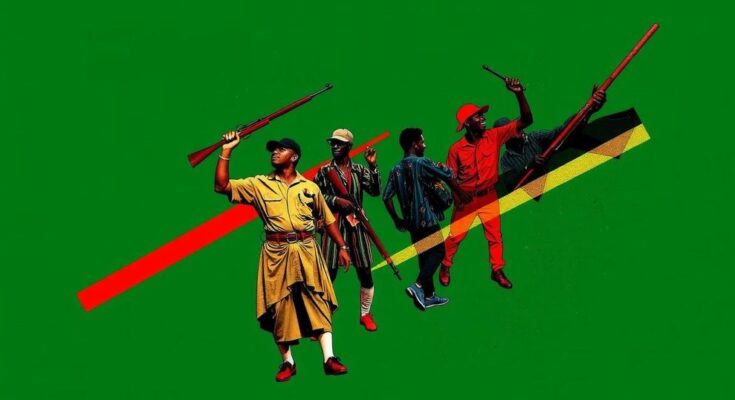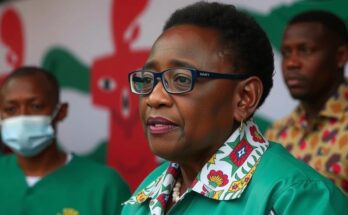Mozambique has experienced significant political and economic changes since its civil war, with notable multiparty elections in 1994 and ongoing tensions between Frelimo and Renamo. Despite economic growth driven by natural resources, poverty remains widespread, leading to political unrest and insurgency threats. Recent elections have been marred by allegations of fraud and violence, raising questions about governance and legitimacy.
Mozambique’s journey towards peace and political stability has been fraught with challenges since the end of its civil war between Frelimo and Renamo in 1992. The landmark multiparty elections held in October 1994 marked a significant step forward, following a series of critical compromises by Frelimo under President Joaquim Chissano, leading to the end of its one-party rule. Renamo transitioned from a rebel group to a recognized political party under Afonso Dhlakama, participating alongside various other parties in a competitive electoral landscape that, despite its progress, revealed underlying tensions that persisted for decades.
In the years following the elections, Mozambique faced substantial obstacles, including the legacy of war, with millions of land mines still posing dangers, and economic growth hindered by natural disasters and a severe financial scandal involving undeclared debt. The political scene remained volatile, with Renamo’s grievances against the Frelimo-led government leading to renewed hostilities by 2013. A fragile peace was restored with a 2014 agreement but was subsequently tested by the economic fallout from cyclones in 2019 and accusations of electoral fraud in both 2019 and 2024.
Despite impressive economic growth, including an influx of foreign investment in natural resources, many citizens remained in poverty, contributing to escalating tensions. The insurgency in Cabo Delgado has further complicated the political climate, bringing humanitarian crises to the forefront. The most recent elections were marred by allegations of fraud, intimidation, and violence, resulting in disputes over the legitimacy of outcomes and exacerbating divisions within the country. Mozambique continues to navigate the complex legacy of its past while striving to achieve inclusive governance and sustainable development.
The history of Mozambique is marked by a prolonged civil conflict that erupted after its independence from Portuguese colonial rule. The civil war between Frelimo and Renamo, lasting from 1977 to 1992, ended with the 1992 Rome General Peace Accords, which paved the way for multiparty democratic elections. The political landscape has since been dominated by the Frelimo party, which has undergone significant ideological changes since its socialist roots. Despite successful elections, historical tensions and socio-economic issues have continued to challenge national stability and governance.
In conclusion, Mozambique’s political journey illustrates the complexities of transitioning from conflict to peace. The struggles to maintain governance in the wake of economic challenges and social discontent highlight ongoing tensions, particularly between Frelimo and Renamo. As the country approaches future elections, the lessons learned from past grievances must inform efforts towards reconciliation and sustainable growth, ensuring that the benefits of economic prosperity are shared among all citizens.
Original Source: www.britannica.com




